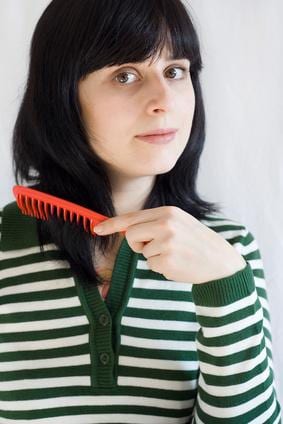Search Results for: administration products
SanGar Food Processing Plant Shut Down, Contaminated Celery Products Recalled
Find out what health officials found in the celery!
Hair Growth Products for Women
It can be disturbing and frightening if you start losing your hair. Before you run to the drugstore to buy a product that guarantees hair growth, you should see a dermatologist who can literally get to the root of the problem. Many conditions can be causing your hair to fall out. Being under stress, inheriting the problem, a medical condition or having simply damaged your hair from over-treating it can all cause you to lose your hair. Each condition requires a different approach for hair growth, according to the AgingSkinNet website.
Hair Regrowth Products for Women
According to the American Hair Loss Association, nearly half the people suffering from hair loss are women. Unlike male pattern balding in which hair loss is almost always genetic, the causes for female pattern hair loss are numerous. Genetics, stress, pregnancy and childbirth, poor nutrition, hormonal imbalances, the use of certain medications and too-tight hairstyles can all contribute to hair loss. Fortunately, there are hair-loss treatments that encourage regrowth.
Hair Products That Stimulate Hair Growth
It’s sometimes trickier to treat hair loss in women than it is in men. Many drugs work in some degree for some women, but doctors can be reluctant to prescribe them unless they know the exact cause of the hair loss, according to the American Hair Loss Association. When you do select a hair loss treatment, you get the best results when you start treatment as soon as you discover the problem. If hair follicles are already destroyed, the best you can do is to prevent more hair loss from occurring.
Ephedra-Free Weight Loss Products
Ephedra was once a popular weight loss aid because when people took it, it suppressed their appetite and gave them energy. Some people did lose weight, but others suffered serious health problems, including death. The U.S. Food and Drug Administration banned herbal products containing ephedra because ephedra is just too dangerous, and, as of 2010, these products are still banned.





